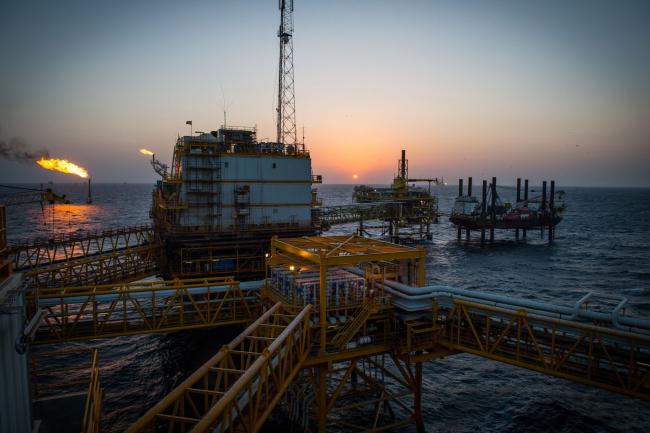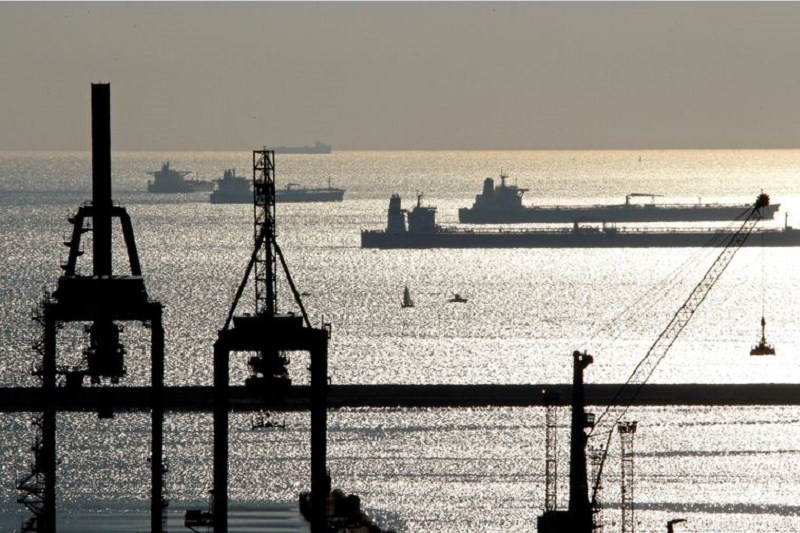(Bloomberg) -- Iran’s oil comeback, already taking longer than many traders expected, will be further complicated by last week’s deadly drone attack on a tanker in the Gulf of Oman, which the U.S., U.K. and Israel all blamed on Tehran.
With talks held up by a change of presidency in Tehran, the incident adds friction to a process that could return 1 million barrels of oil a day to the global market within months. Even if the allies decide against a military response, Washington may be less willing to ease sanctions on the Islamic Republic’s energy exports.
“It looks inevitable that this will cast a black cloud over nuclear talks” between Iran and world powers including the U.S., said Bill Farren-Price, a director at energy-research firm Enverus.
The negotiations -- to revive a 2015 pact that limited Iran’s atomic program in return for sanctions relief -- had already stalled. A sixth round in Vienna broke up last month. Diplomats are waiting for Iran to re-enter talks now that Ebrahim Raisi, an austere cleric who has long argued against a rapprochement with the U.S., has become president.
Restoring the Joint Comprehensive Plan of Action -- which then-President Donald Trump pulled the U.S. out of in 2018 -- is key to Iran’s ability to increase oil production. Its crude exports have plummeted to almost nothing from more than 2 million barrels a day in mid-2018.
Many oil investors had expected a new nuclear deal before Iran’s elections in mid-June.
While Raisi and Supreme Leader Ayatollah Ali Khamenei could resume negotiations soon, there’s still much for the sides to overcome. Iran wants a guarantee that future U.S. administrations won’t withdraw from any deal, as Trump did. It also insists sanctions are removed across the board -- on its shipping and banking industries as well as on energy exports.
Washington is wary of both demands. Another sticking point is the JCPOA’s so-called “break out” clause. It was designed to constrain Iran’s nuclear activities enough that it would need a full year to build a bomb if it chose to exit the accord. Some U.S. officials believe Iranian scientists have made enough progress in the past three years to construct an atomic weapon within a few months.
Still, Iran and the U.S. have both said they’ll continue to negotiate. Washington sees a deal a way to help stabilize the Middle East -- even if it doesn’t address Tehran’s ballistic missiles or support for proxy forces in the likes of Yemen and Lebanon -- while sanctions have battered the Iranian economy.
“There will be more tanker attacks but they are not what’s standing in the way of a nuclear deal,” said Scott Modell, managing director of Rapidan Energy Group, a Washington-based consultant. “Neither is Iran’s incoming hardline president, who’s not about to trot out a whole new series of demands. But he will continue pushing for concessions.”
Modell predicts there’ll be an agreement by September, allowing Iran to raise daily oil output by around 1 million barrels by the end of the year.
For now, oil traders are more concerned about the spread of a delta coronavirus variant than a lack of supply from Iran. Brent crude dipped 3.4% on Monday to less than $73 a barrel. But with prices still up more than 40% this year and most analysts forecasting a tightening market over the rest of 2021 as major economies recover, Iran’s absence could soon be felt.
Thursday’s attack on the Mercer Street, an oil-products vessel managed by an Israeli company, makes the prospect of U.S. sanctions being removed “ever more remote,” according to Helima Croft, chief commodities strategist at RBC Capital Markets.
“The key question that comes from the Mercer Street incident is whether the Supreme Leader has calculated that a return to the JCPOA is not a top-of-the-agenda item and brinkmanship may produce more benefits,” she said.
©2021 Bloomberg L.P.

